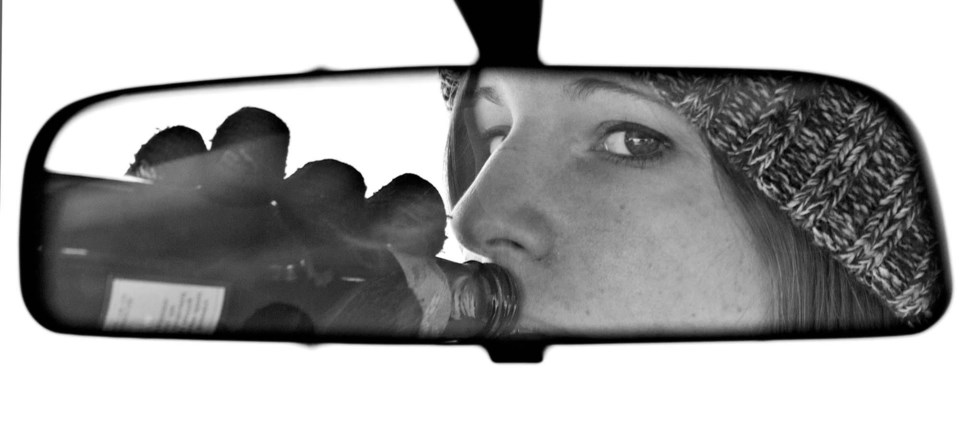So you’ve had a few drinks and you hop into your car, ready to drive home. Instead, you end up in a hospital since you can’t drive in a straight line.
Impaired driving is one of the leading criminal causes of death in Canada, responsible for 59 per cent of non-homicide-related criminal fatalities nationwide in 2019, reports Statistics Canada. Alcohol and drugs were involved in about 24 per cent of Alberta’s fatal collisions last year, Cpl. Richard Nowak of the Alberta RCMP’s traffic headquarters said in an email.
Drugs such as alcohol and cannabis impair our ability to drive by messing with neurotransmitters, explained University of Alberta neuroscientist Declan Ali.
“A lot of the brain is dedicated to some aspect of motor control,” he said, which requires the right neurons to fire at the right time, and in the right order.
When you consume alcohol or cannabis, alcohol and THC molecules start binding with various proteins on neurons in your brain and spine, triggering some and suppressing others, Ali explained. The effect is much like dropping a bucket of water on a computer — your nerve transmissions go haywire, interfering with your ability to move, think, and perceive.
Researchers have found that alcohol results in slowed reaction time and a reduced ability to do multiple tasks at once (such as watching the side of the road and the car in front of you), said Tim Stockwell of the Canadian Institute for Substance Use Research. It also tends to make you drive faster, as it suppresses your ability to perceive risks.
These and other effects make you more likely to die in a collision, reports the Alberta government — your risk of death compared to being sober goes up three times at a blood-alcohol content level of 0.05 per cent, six times at 0.08 per cent, and 11 times at 0.1 per cent.
THC tends to make people more risk averse and drive slower, but also inhibits reaction time, Stockwell said. It might be slightly less dangerous than alcohol when it comes to impaired driving, but still makes you more likely to get in a crash. A recent University of Calgary study found alcohol and cannabis did not cancel each other out when combined, and in fact caused more impairment than either could on their own.
Everyone processes drugs differently, so there’s no hard-and-fast rule as to the amount of drugs you have to consume to become impaired, Stockwell said. Impairment can happen with as little as one or two drinks.
Drugs such as alcohol change all aspects of your functioning, including your ability to notice such changes, Ali said. This means you might think you’re able to drive safely after a few drinks, whereas in fact you cannot.
“It is not a good idea to get behind the wheel after you’ve had these things,” Ali said of cannabis and alcohol.
Taking other drugs such as caffeine or cocaine won’t counteract the effects of alcohol or cannabis, as they affect different parts of your nervous system, said Ali and Stockwell.
“You’re still hugely impaired, but you believe you’re not,” Stockwell said.
The only way to counteract drugs in your body is to wait for enzymes such as alcohol dehydrogenase to break them down, Ali said. Scientists have yet to find a method of accelerating this process that doesn’t cause other problems.
Any amount of drugs or alcohol can cause impairment, and impaired driving is a crime, Nowak said.
“Driving impaired is never worth the risk,” he said — call a cab or a ride share, or have a designated driver instead.
“If you have consumed an impairing substance, do not drive.”



